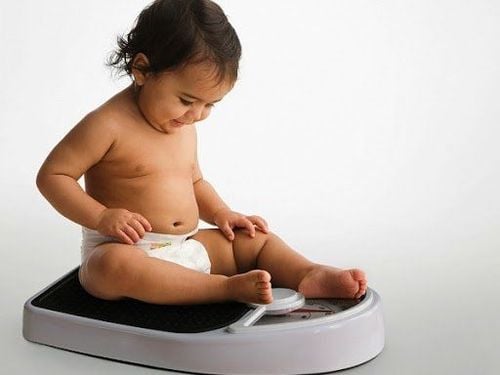The eating, sleeping, and play habits of a 7-month-old baby are often of great concern to parents. At this stage, breast milk is still the primary source of nutrition. However, some babies experience frequent bowel movements, while others may suffer from constipation, causing significant worry. So, how many bowel movements per day is normal for a 7-month-old baby?
1. How many bowel movements per day is normal for a 7-month-old baby?
At 7 months, babies mainly drink breast milk or formula, but they may also start eating solid foods. The introduction of solids can change the consistency and frequency of bowel movements.
- Breastfed babies usually poop around 5 times a day. Their stools are soft, yellow, and slightly watery.
- Formula-fed babies: They tend to have fewer bowel movements compared to breastfed babies. Their stools are darker yellow, firmer, and have a stronger odor due to the higher nutrient density in formula.
When starting solid foods at 7 months, bowel movements may decrease in frequency. Stools can become more solid and develop a stronger odor. Some babies may have 1–2 bowel movements per day, while others may only pass stools every few days. However, if your baby eats well, plays normally, and shows no signs of discomfort during bowel movements, there's no need to worry.
2. How many bowel movements per day is abnormal for a 7-month-old baby?
Changes in bowel movements, either too few or too many, may indicate digestive issues. Here are the key signs to watch for:
2.1. Few bowel movements per day
If your baby passes stools infrequently and shows the following symptoms, they may be constipated:
- Fewer than 2 bowel movements per week.
- Hard, dry stools that are larger than normal.
- Long periods (25–30 minutes) of straining without success.
- Crying or discomfort during bowel movements.
- Reduced appetite or fatigue.
2.2. Frequent bowel movements per day
If a baby has more than 5 bowel movements per day, with watery or mucous-like stools, foam, or foul odor, they may have diarrhea. Other concerning signs include pale skin, dry lips, and lethargy. Dehydration may occur in severe cases, requiring increased breastfeeding and possibly electrolyte solutions like oral rehydration salts (ORS).
3. Tips for managing constipation in 7-month-old babies
When dealing with constipation, try the following strategies:
- Keep your baby hydrated by offering breast milk, formula, and a small amount of water. A 7-month-old requires approximately 100 ml of fluids per kilogram of body weight daily, including milk. You can also offer fresh fruit juice in small amounts.
- Adjust feeding practices: Limit solid foods to 1–2 meals per day, with an emphasis on foods that are easy to digest and promote softer stools.
- Choose the right formula: If your baby shows signs of constipation, diarrhea, or vomiting with formula, consult a doctor to find a suitable alternative. Always follow the mixing instructions carefully.
- Encourage movement: Gentle physical activity, such as tummy time or leg exercises, can improve bowel function.
- Focus on diet: Include fiber-rich foods like vegetables and fruits while balancing protein intake to avoid excess.
4. When to see a doctor for constipation or diarrhea
Seek medical attention if your baby shows any of the following symptoms:
- Persistent bloating, abdominal pain, or vomiting.
- Poor weight gain over several months.
- Bloody stools or visible pain during bowel movements.
- Signs of anal fissures, swelling, or hemorrhoids.
Additionally, if diarrhea persists despite interventions and your baby appears pale, lethargic, or uninterested in playing, consult a pediatrician promptly.
In conclusion, understanding your baby's bowel movement patterns is crucial. For normal digestive health, ensure proper hydration, balanced nutrition, and regular activity. If issues persist, don't hesitate to consult a healthcare professional.
To schedule an appointment at the hospital, please contact the HOTLINE or book directly HERE. Download the MyVinmec App to manage, track, and schedule appointments conveniently anytime, anywhere.













